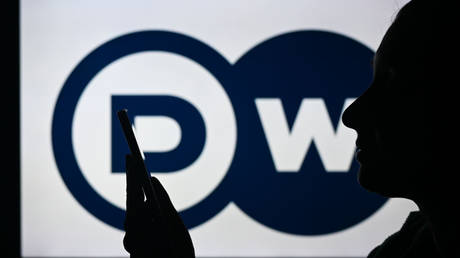Foreign-Influenced Corporate Money in State Elections (CO, MI, MN, MT, NY and WA)

A Case Study of State-Level Corporate Political Contributions in Colorado, Michigan, Minnesota, Montana, New York & Washington
Contributors: Jimmy Cloutier, Brendan Glavin, Taylor Giorno, Ciara O'Neill, Anna Massoglia, Pete Quist, Inci Sayki, Rachel Timmons and Harshawn Ratanpal
Federal campaign finance law bars contributions made directly by or indirectly from foreign nationals in connection with any federal, state or local election, but U.S.-registered corporations that are subsidiaries of foreign corporations or that have foreign ownership often pour money into U.S. politics. A new OpenSecrets analysis found these foreign-influenced companies (foreign-influenced companies) have poured millions of dollars into political contributions to lawmakers in states that are cracking down on their political giving.
Prior to the Supreme Court's 2010 Citizens United ruling, companies were not allowed to spend money directly from corporate treasuries on independent expenditures that expressly called for a candidate's election or defeat. Citizens United opened the floodgates to corporate giving in elections across the country.
While the Supreme Court's Citizens United ruling was a federal decision on its face, the ruling essentially invalidated numerous state laws that prohibited corporate and union independent spending. Notably, Montana challenged this in order to maintain its corporate ban, but was rebuffed by the Supreme Court. Prohibitions on corporate giving directly to candidates from corporate treasury funds remains an option for states, and is in place for several of states covered in this report.
Gov. Tim Walz (D-Minn.) signed the Democracy for the People Act in May of 2023, prohibiting foreign-influenced corporate spending in Minnesota elections.
Similar legislation in other states is also not far behind. In recent years, concerns about foreign influence in U.S. elections have grown, and several states have proposed laws to restrict foreign-influenced companies from engaging in political spending in state or local elections.
The states' proposals to rein in political giving by foreign-influenced companies would generally prohibit companies that have substantial foreign ownership from making contributions or expenditures in state or local elections.
OpenSecrets' new analysis examines disclosed corporate contributions in six key states, analyzing campaign finance disclosures where the contributors are companies that have met the criteria for being foreign-influenced corporations under the proposed foreign influence legislation.
Findings
Committees reporting contributions to campaign finance regulators in six states where there has been a recent push to restrict political giving by foreign-influenced companies — Search OpenSecrets' database of contributions made by foreign-influenced companies in Colorado, Michigan, Minnesota, Montana, New York and Washington— attracted more than $163 million in political contributions between the 2018 and 2022 election cycles from companies that could be impacted by the new laws.
Committees include state-level candidates, party committees, PACs and ballot measure committees as well as independent expenditure committees where available.
At least 800 companies with over 5% aggregate foreign ownership or an individual foreign owner over 1% at any point during the 2022 election cycle collectively gave those committees tens of millions of dollars across the six states.
This analysis is a conservative estimate of corporate political contributions by foreign-influenced corporations in these states, for several reasons which are explained in more detail in the Methodology section but summarized here. First, many corporations make large political contributions to entities, such as 501(c)(3) or (c)(4) nonprofits, that are not required to disclose their donors but which may spend heavily on ballot measures or candidate elections. Second, some states' records do not cleanly distinguish corporate treasury contributions from corporate employee PAC contributions, and our analysis excluded ambiguous data. Third, OpenSecrets investigators also came across instances where a foreign company owned a stake in the subsidiary of a U.S. company that made political contributions in at least one of the six states. The bills under consideration in these states cover spending by a corporation that has a 1% investor that is itself 50% or more owned by a foreign entity, but these companies were excluded from the final list in this analysis. For these and other reasons, these numbers should be understood as a floor and not a ceiling on the amount of corporate political spending by foreign-influenced companies in these states.
The top 33 foreign-influenced companies gave at least $1 million each across the six states, collectively accounting for about $134.0 million in giving between the 2018 and 2022 election cycles, which include the period from January 2017 through December 2022.
Altria was the top FIC contributor to state-level candidates with over $18.1 million in contributions in the five states, the bulk of that in Montana.
BP is the second-biggest contributor across the five states with over $13.4 million in contributions, the bulk of that in Washington.
Coca-Cola, a U.S. based beverage corporation that meets both the threshold for 1% individual ownership and 5% aggregate foreign ownership, is another top FIC giver across the six states during the period from 2017 to 2022 with over $11.6 million in contributions.



